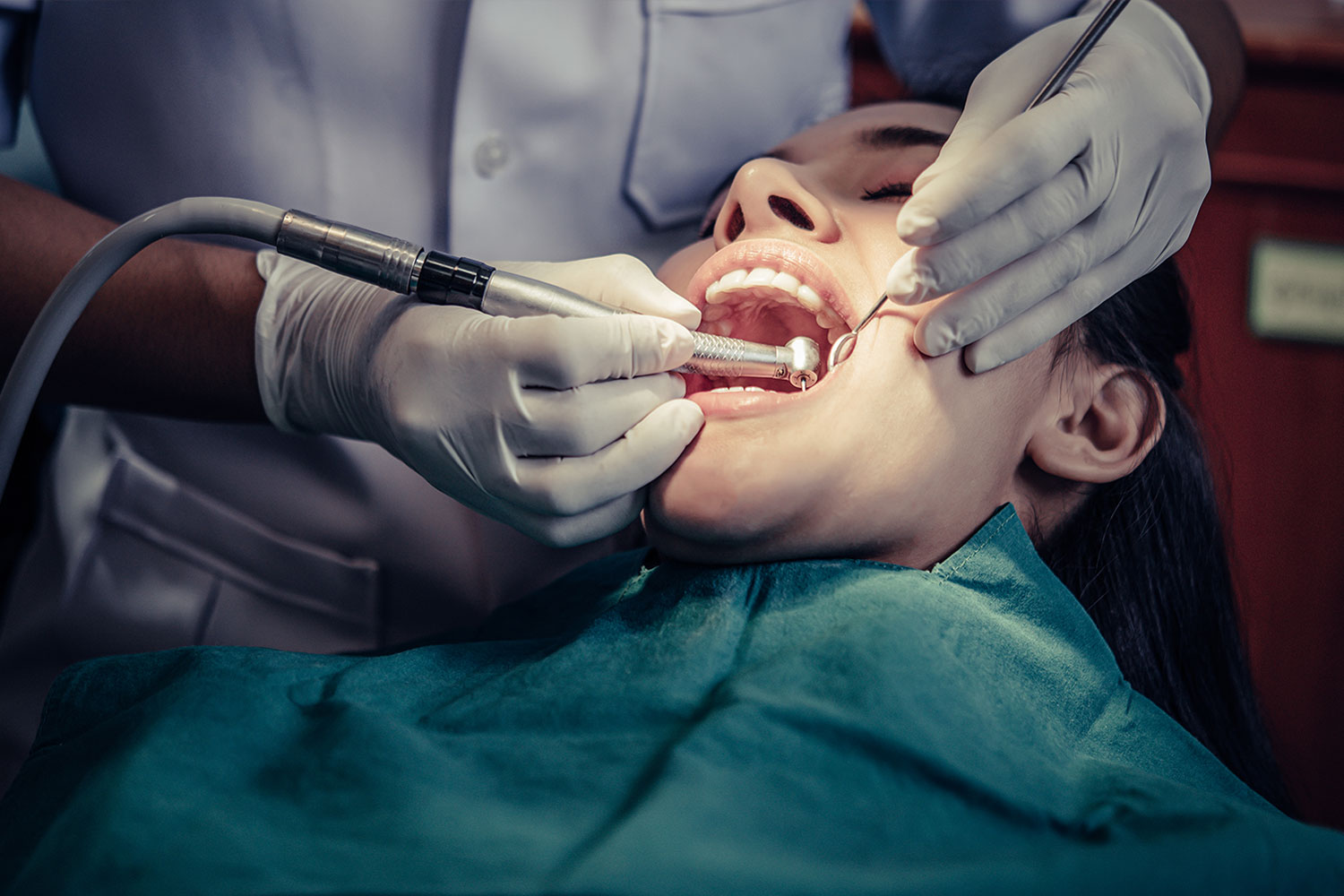Wisdom teeth extraction is a procedure that is often performed on people in their late teenage years or early twenties. This procedure is done when the wisdom teeth are proving to be a problem, such as when they are impacted, misaligned, or awkward. The wisdom teeth may also need to be extracted if they are causing overcrowding in the mouth or if they are causing gum inflammation, pain, or infection. During the procedure, the dentist or oral surgeon will make a small incision in the gums to access the wisdom tooth and cut it into smaller pieces to make it easier to remove. Once the tooth is extracted, the gums will be stitched up, and antibiotics may be prescribed to reduce the risk of infection.
Healing times may vary depending on the severity of the surgery, but most people recover after 3-4 days. Here is what to expect when healing after wisdom teeth removal:
Swelling: Swelling of your face is normal after wisdom teeth removal surgery. This may be present for up to 3-4 days.
Bruising: After surgery, mild bruising may appear around your cheeks and jaw. This should resolve in the same 3-4 days.
Pain: You may experience minor discomfort for the first few days after the surgery. Your dentist or oral surgeon may prescribe pain relief medication to help with this.
Care: It is essential to follow the instructions given by your dentist or oral surgeon when taking care of yourself after the surgery. This may include regular cleaning of the area, avoiding smoking, and avoiding foods that are difficult to chew.
By following the instructions of your dentist or oral surgeon and taking proper care of yourself, you should have no problem healing after wisdom teeth removal.
How to Speed Up Recovery Following Wisdom Teeth Removal
Wisdom teeth removal can be tedious, and recovery after the surgery can take several weeks to heal completely. Knowing how to speed up the recovery process is key to reducing discomfort and returning to your daily routine as quickly as possible.
Blood Clot Formation
Blood clot formation at the wisdom tooth extraction site is a crucial aspect of the healing process because it helps to check excessive bleeding, prevent wound infection, boost new tissue growth, and protect the exposed bone. To ensure proper clot formation and speed up recovery, you should refrain from touching or disturbing the area.
Keeping the Area Clean
Keeping the area clean is also essential for a successful healing process. To ensure your mouth is as clean as possible, practice good oral hygiene habits such as brushing and flossing your teeth twice daily and rinsing your mouth with a saline solution regularly. Additionally, your dentist may prescribe an antiseptic mouthwash to help prevent infection.
Eating the Right Foods
Eating the right foods can also help speed up the recovery process. Choose soft, nutritious foods that are easy to chew and swallow, such as soup, yogurt, mashed potatoes, and other soft fruits and vegetables. Avoid spicy, acidic, or crunchy foods, as they irritate the extraction site.
Taking Medication
Your dentist may also give you antibiotics and pain medication after your surgery to help reduce infection and pain. Take medicine as prescribed and follow your dentist's instructions. You may also find applying an ice pack to the affected area helpful, as this can help reduce swelling and discomfort.
Avoiding Habits
Finally, be mindful of habits that might irritate the extraction site or delay healing. For example, avoid using straws, smoking, drinking alcohol, and engaging in strenuous physical activities, as these can all hinder the healing process.
Following the above tips can help speed up your recovery process following wisdom teeth removal. Proper steps to ensure a speedy and successful recovery are essential for oral health.
Recovery Tips for Wisdom Tooth Removal
Taking special care of yourself after wisdom tooth removal surgery is important. Here are some tips to ensure a speedy recovery:
Apply an ice pack to the area to reduce swelling and help with bruising. Keep the pack on for up to 20 minutes, and do this every few hours.
– Use damp heat to treat a sore jaw. This can be done by taking a warm, damp washcloth and placing it on the side of your face.
– To help prevent your jaw from becoming stiff, gently exercise it by slowly opening and closing it.
– For the first few days after surgery, eat soft foods like pasta, rice, or soup. Avoid hard and crunchy foods, which can irritate your gums and teeth.
– Drink plenty of fluids to keep your body hydrated and promote healing.
– After 24 hours, you can start brushing your teeth again, although you should avoid brushing against blood clots.
– Take any medications your dentist prescribes to help with pain and swelling.
– If you have a fever or if your pain or swelling is not improving, contact your dentist immediately.
Wisdom teeth can present various issues, and it is often best to visit a dentist as soon as you feel any discomfort, pain, or swelling in the area. HCL Dental Care in Noida will review your specific case and suggest an appropriate treatment, which may include wisdom tooth extraction.







